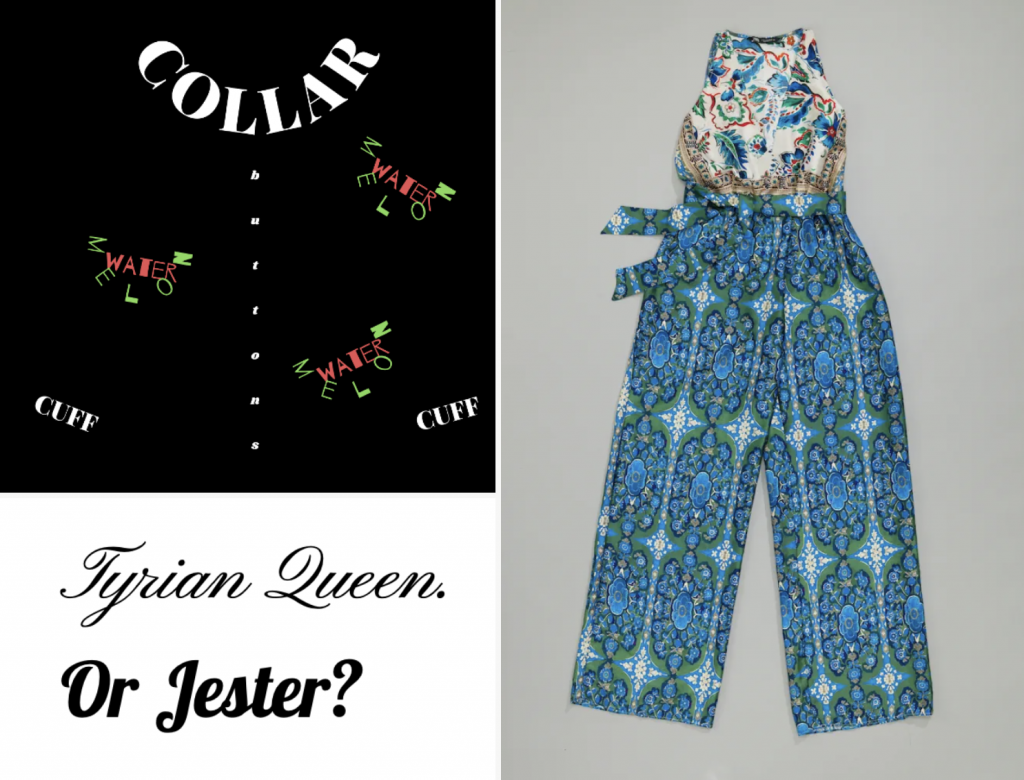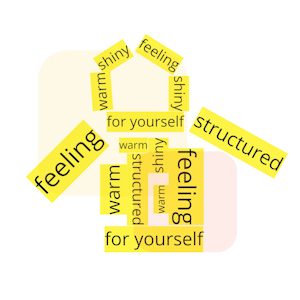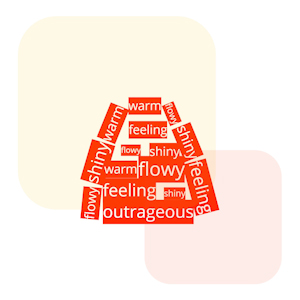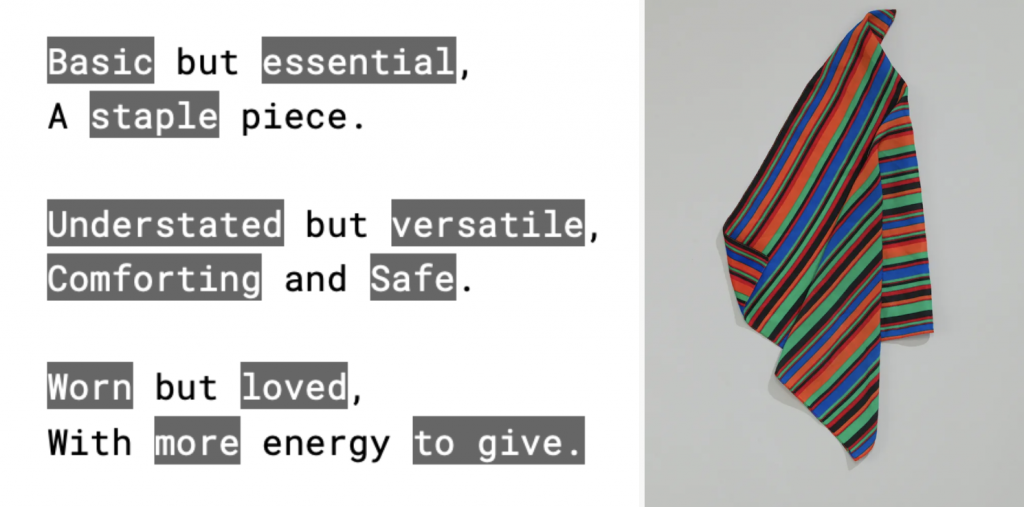What would the lack of images mean for the fashion industry? Would it collapse? These are some of the questions asked in World 62, a fictional world where images portraying clothes are banned.
In this fiction a number of events, such as the deaths of Princess Diana and a handful of malnourished super-models, leads to strict legislation controlling the publication of images of people. To reach customers at home, fashion brands turn to Teletext.

Text description and garment from Fashion Fictions participants.
Adapting to this new way of communicating, people’s language begins to change – customers developed a complex ways of talking about colour, fibre, and fabric, and the descriptions of texture become particularly important.
A recent Fashion Fictions enactment brought this world to life via a collaborative activity in which garments were creatively described in words and posted to participants, who added to the description as each piece of clothing passed through different hands.

Immerse yourself in this fashion fiction interactive game.
To help immerse people in this world, Atlas of the Future and Fashion Fictions commissioned game designers Alexander Swords and Bella Battersby to make an interactive game that helps us understand what this world might feel like. In it players can “buy” their own clothes based solely on text descriptions.
Give it a go here: the Fashion Insproesis Experience.

Can you buy clothes through description alone?
This is the last phase of a collaboration between Atlas of the Future and Fashion Fictions; check out all the other wonderful and weird fashion fictions we’ve been exploring this past year:
► What stories would our clothes tell?
► It’s time to get resourceful
If you’re curious to know more about Fashion Fictions you can catch founder Dr Amy Twigger Holroyd at Fixing the Future Festival – 12, 13 and 14 October 2023 at Disseny Hub Barcelona. Get your tickets here!
This Enactment was devised by Amy Twigger Holroyd, building on an Exploration created by Wendy Ward and Jana Melkumova-Reynolds, which was in turn developed from a World contributed by Talia Hussain, using a Creative Commons Attribution-ShareAlike 4.0 International licence which allows others to share and adapt the work in any medium and for any purpose, providing that they credit the authors and share their material using the same Creative Commons licence.

